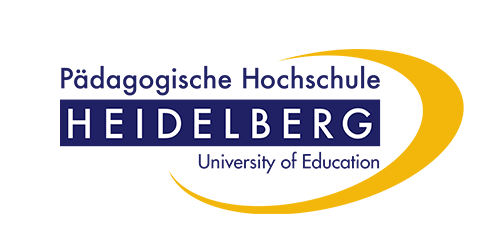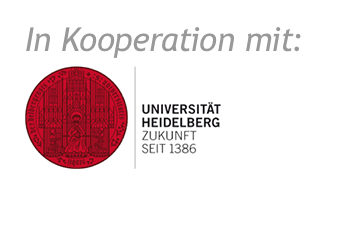Streuobst gemeinsam erhalten und gestalten
Partizipativer Einsatz innovativer Geo-Technologien zum Schutz wertvoller Kulturlandschaften in Neckarsulm mit Auszubildenden (Steg:Geo)
Paul Joseph, M. Sc., Dr. Maike Petersen, Prof. Dr. Alexander Siegmund
Das Projekt beleuchtet die Region Heilbronn-Franken als wichtiges Streuobstgebiet in Baden-Württemberg. Trotz ihrer industriellen Bedeutung, insbesondere durch das Audi-Werk in Neckarsulm, steht die Region vor Herausforderungen und Chancen im Hinblick auf eine nachhaltige Landschaftsentwicklung und den Erhalt der Biodiversität. Ziel des Projektes ist es, Auszubildende in die Anwendung innovativer Geotechnologien wie Drohnen und Satellitendaten zur Überwachung und Pflege von Streuobstbeständen einzubeziehen. Durch die Verknüpfung von Umweltmonitoring, partizipativer Umweltbildung und moderner Technologie sollen junge Menschen motiviert werden, sich aktiv für den nachhaltigen Erhalt und die Weiterentwicklung der heimatlichen Kulturlandschaft einzusetzen.
Die Region Heilbronn-Franken zählt zu den bedeutendsten Streuobstgebieten Baden-Württembergs und besticht durch ihre landschaftliche Vielfalt, geprägt durch das Neckarbecken, den Kraichgau, die Hohenloher-Haller Ebene und die Schwäbisch-Fränkischen Waldberge, wodurch eine einzigartige Kulturlandschaft entsteht. Als bedeutender Industriestandort, insbesondere durch das Audi-Werk in Neckarsulm, steht die Region zudem vor der großen Herausforderung, die enge Verflechtung von Mensch und Umwelt, Stadt und Land, sowie Natur- und Kulturlandschaft in einem ausgewogenen Verhältnis zu halten.
In den letzten Jahrzehnten sind Streuobstbestände in der Region Neckarsulm wie auch landes- und bundesweit entweder verschwunden oder in ihrem Pflegezustand und ihrer Vitalität gefährdet. Die Gründe hierfür sind vielfältig und umfassen die Ausdehnung von Siedlungsgebieten, die Intensivierung der Landwirtschaft sowie die weitgehende Aufgabe entsprechender Flächen aufgrund geringer ökonomischer Rentabilität. Die Altersstruktur der Eigentümerinnen und Eigentümer trägt zusätzlich dazu bei, dass Streuobstbestände zunehmend vernachlässigt und von den nachfolgenden Generationen kaum mehr gepflegt werden.
Der Verlust von Streuobstbeständen beeinträchtigt nicht nur das Landschaftsbild, das für die Identifikation mit der Heimat, die Naherholung und den Tourismus von großer Bedeutung ist. Streuobstwiesen sind wichtige Lebensräume für viele Tier- und Pflanzenarten und kaum ein anderer Landschaftstyp weist eine so hohe Artenvielfalt auf. Die zunehmende Zerschneidung durch Verkehrswege, Acker- oder Siedlungsflächen unterbricht die Vernetzung der Streuobstwiesen untereinander und mit anderen Biotopen wie Auen oder Wäldern.
In diesem Kontext setzt das Steg:Geo an. Der Fokus liegt auf der integrativen Verknüpfung innovativer Methoden des Umweltmonitorings und partizipativer Umweltbildung mit jungen Menschen, insbesondere Auszubildenden des Audi-Werks. Diese Auszubildenden repräsentieren nicht nur die letzte Generation, die maßgeblich zur nachhaltigen Entwicklung bestehender Kulturlandschaften beitragen kann, sondern auch die erste Generation, die die unmittelbaren Folgen des Klimawandels und anderer Umweltveränderungen erfahren wird.
Die Offenheit junger Menschen für neue Technologien ermöglicht es, Brücken zwischen traditionellen Wirtschaftsformen und zukunftsweisenden Ansätzen zu schlagen. Ein Beispiel hierfür ist der Einsatz moderner Geo-Technologien wie Drohnen- und Satellitendaten sowie Geographischer Informationssysteme (GIS) zur Erfassung von Baumbeständen und Planung von Pflegemaßnahmen. Im geplanten Projekt werden Auszubildende, insbesondere des Audi-Werks, im Rahmen eines integrativen, partizipativen Ansatzes nicht nur in die Erfassung von Pflegezustand, Vitalität und Krankheitsbefall von Streuobstbeständen durch innovative Geo-Technologien eingebunden, sondern auch in Maßnahmen zum Erhalt und zur nachhaltigen Weiterentwicklung der Streuobstbäume. Die Auszubildenden werden in die Grundlagen der Nutzung von Drohnen, der Auswertung von Satellitendaten und der Nutzung von GIS eingeführt, um sie über den motivierenden Einsatz moderner Technik auch an das Thema Streuobst heranzuführen.
Zusätzlich ermöglichen Informationen über die Art und Intensität der Flächennutzung Rückschlüsse auf die Pflege einzelner Streuobstwiesen. Die Analyse kleinräumiger Landschaftsstrukturmerkmale wie Größe, Form, Struktur und Nachbarschaftsbeziehungen der Streuobstbestände optimiert deren Vernetzung durch gezielte Pflanzmaßnahmen und trägt damit zur nachhaltigen Erhaltung und Förderung der Biodiversität bei. Diese Erkenntnisse können zudem die Potenziale für zukunftsweisende landwirtschaftliche Nutzungsformen wie Agroforstsysteme beurteilen.
Durch die unmittelbare Arbeit in Streuobstbeständen in ihrer eigenen Region zur Erhebung von Daten im Gelände zu Baumarten, Vitalität etc. und durch Pflegemaßnahmen wie Baumschnitte wird nicht nur die Identifikation der Auszubildenden mit ihrer heimatlichen Kulturlandschaft gefördert, sondern auch ein Beitrag zum nachhaltigen Erhalt und zur Weiterentwicklung dieser für die Region prägenden Landschaftsform geleistet. Damit verknüpft das Projekt die Bewahrung der regionalen Identität mit innovativen Technologien und schafft eine Grundlage für eine nachhaltige Entwicklung der Streuobstbestände in dieser bedeutenden Kulturlandschaft.
Projektlaufzeit: 01.03.2024 – 28.02.2027
Gefördert durch: Audi Stiftung für Umwelt GmbH




